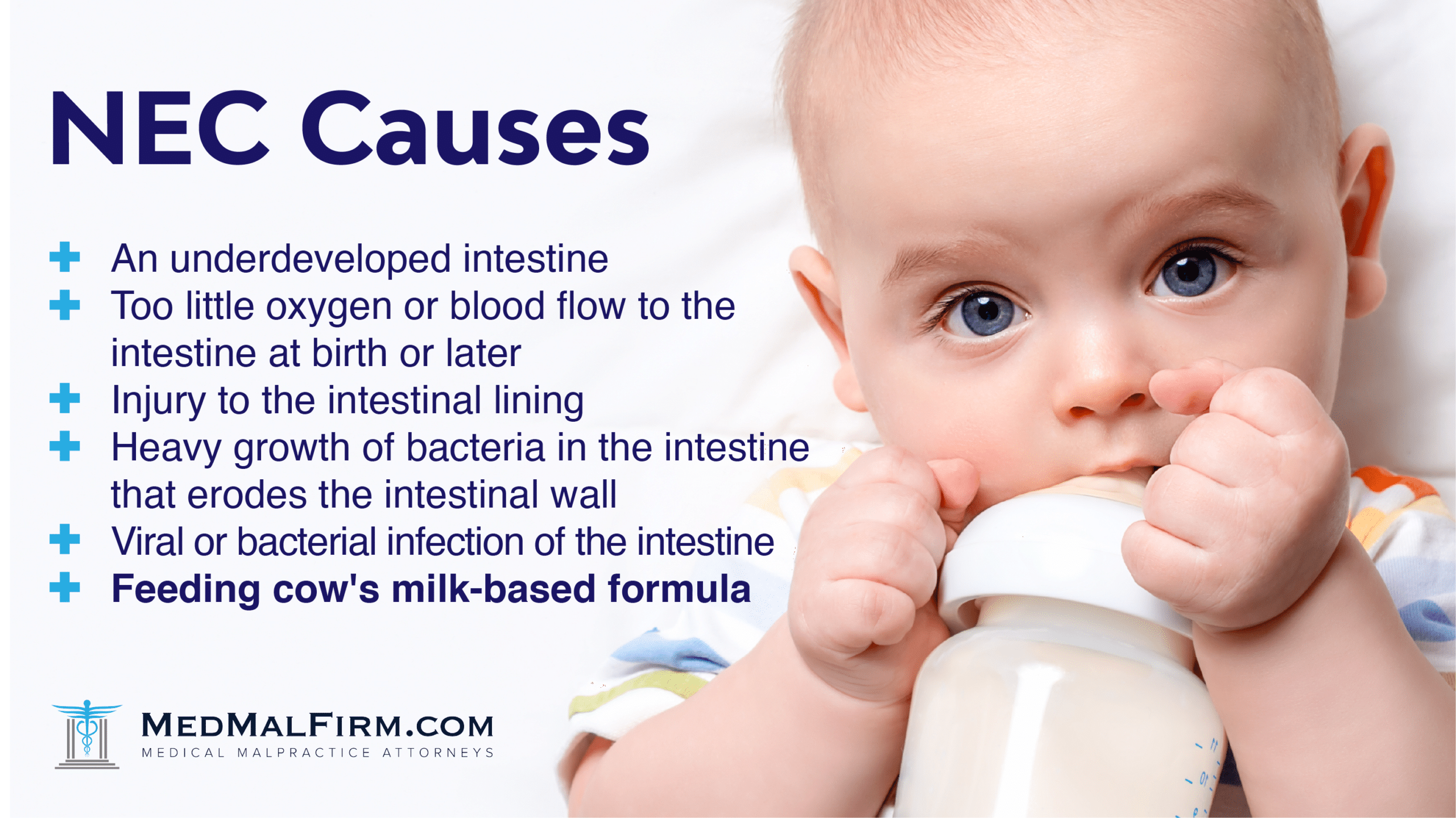
NEC Causes
As we continue providing information about NEC to families, we would like to dedicate this blog to discussing NEC causes. There is no specific and consistent cause of NEC, but experts do believe they know…
As we continue providing information about NEC to families, we would like to dedicate this blog to discussing NEC causes. There is no specific and consistent cause of NEC, but experts do believe they know what risk factors increase the risk and contribute to NEC developing. This is important in helping establish better practices for preventing NEC in hospitals.
NEC Causes

Experts do not fully understand the causes of NEC, but they do know that there are certain factors that increase the risk of NEC. These factors include:
- A premature intestine and bowel system
- Feeding premature infants cow’s milk-based formula
- Oxygen deprivation to the intestines during or shortly after birth
- Injury to the lining of the intestine
- Bacteria growth that erodes the intestine
- Bacterial or viral infection in the intestine
Most often, NEC develops in infants after oxygen deprivation or an injury to the intestines. However, there are documented cases of NEC appearing in clusters in neonatal intensive care units (NICUs). This can happen when bacterial or viral infections transmit from one infant to another. As a result of the infection, the infant is more vulnerable to NEC.
NICUs have very strict infection control guidelines. These guidelines are designed to prevent infections and manage any outbreaks that occur.
Who is Most At Risk for NEC?
Most cases of NEC occur in infants who are premature, or who are born before 32 weeks gestation. It is also more common in infants with low birth weight. NEC can develop in full-term infants, but most of these cases involve underlying health conditions like health problems or a heart defect.
For parents and healthcare providers, it is important to be aware of the symptoms of NEC so that diagnosis and NEC treatment can begin immediately.
How Can NEC be Prevented?
NEC is one of the leading causes of death among newborns in hospitals. Consequently, a great deal of research has been dedicated to preventing the disease from occurring in the first place. Over the past 10 years, multiple studies have focused on preventing NEC. While all of the studies vary, there is one theme that is consistent between them – the best way to prevent NEC is to feed newborns a strictly human milk-based diet.
Experts agree that prioritizing human milk is the best way to prevent NEC in newborns. Human milk contains more nutrients like lactoferrin and immunoglobulins, which are important for newborns. These nutrients promote intestinal adaptation and maturation, and help the infant’s immune system become stronger. This, in turn, helps improve feeding tolerance and appropriate digestion, which reduces the risk of infection or disease.
Manufactured formulas are made from cow’s milk and contain bovine proteins. A premature infant with an immature digestive tract cannot properly process and digest the bovine proteins. As a result, bacteria can build up and begin to invade the wall of the intestine. Inflammation and infection can then quickly turn into NEC.
Research shows that a human milk diet substantially lowers the risk of NEC, while infants fed cow’s milk-based formulas have a much higher risk.
Sources:
